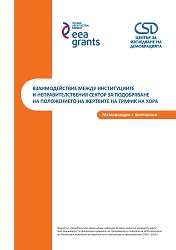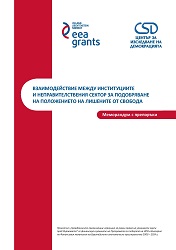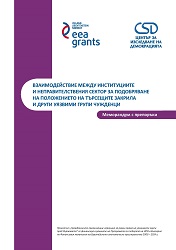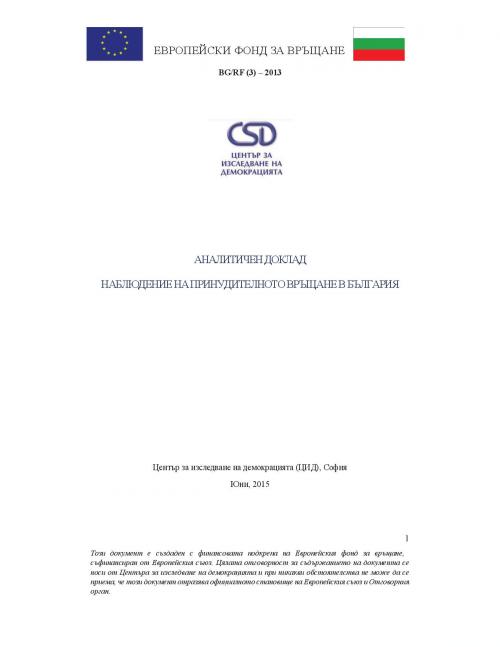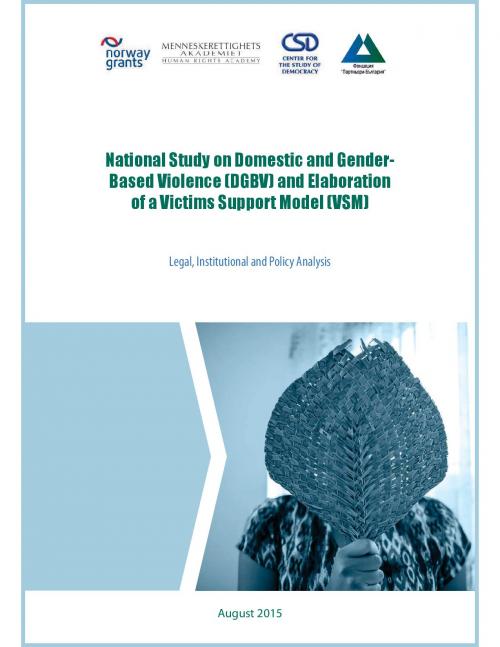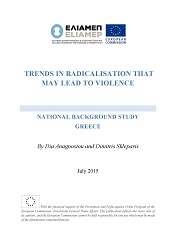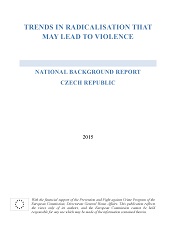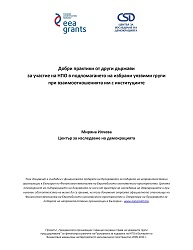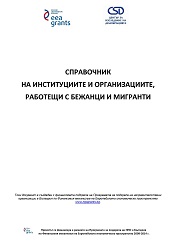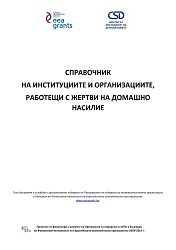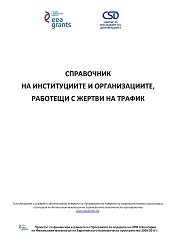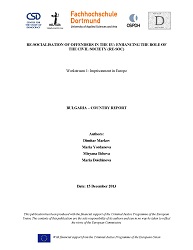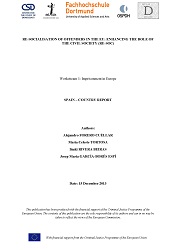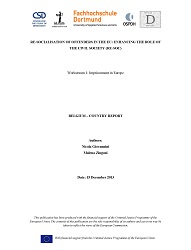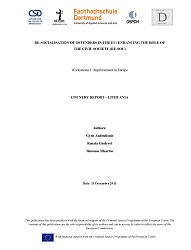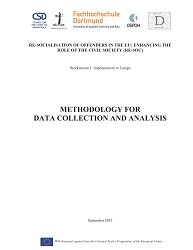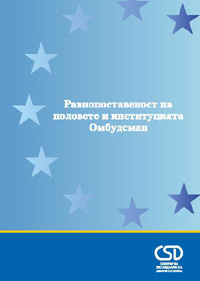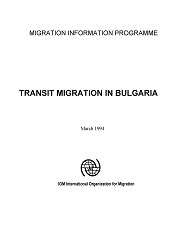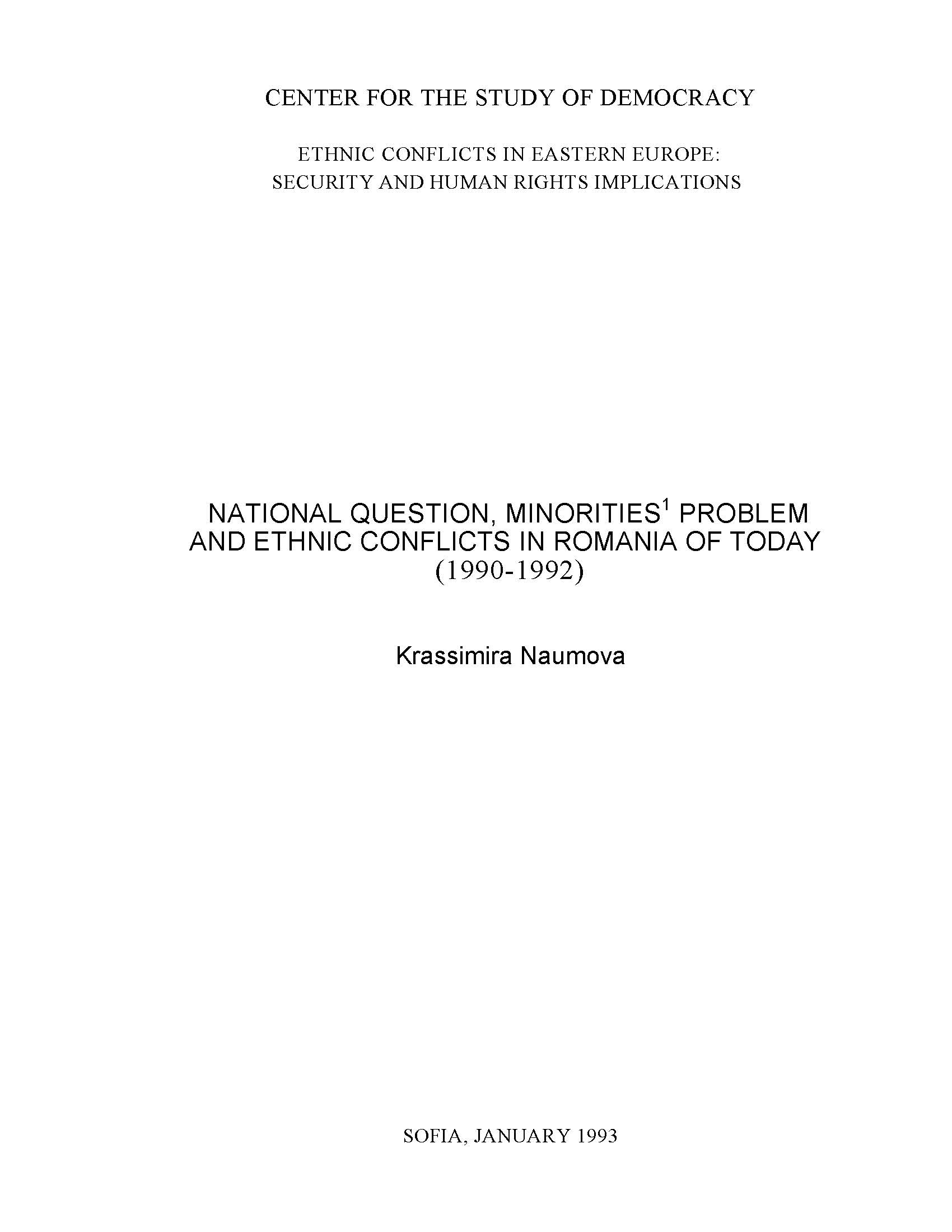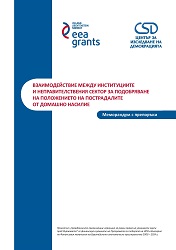
Co-operation between institutions and NGOs in improving the status of domestic violence victims
Взаимодействие между институциите и неправителствения сектор за подобряване на положението на пострадалите от домашно насилие
Keywords: CSD; Center for the Study of Democracy; memorandum; recommendations; vulnerable groups; domestic violence; victims
The initiative ‘Civic Organizations: a Guarantee for Equal Rights of Vulnerable Groups before the State’ encompasses four vulnerable groups: persons deprived of their liberty, victims of human trafficking and domestic violence, as well as persons in need of international protection and other vulnerable foreigners. Although very different, those communities encounter similar problems in their relations with institutions: insufficient human and financial resourcing, work practices not always meeting the needs of vulnerable groups. Thus, oftentimes those persons rely on civil society for improving their status, including through assistance before the respective competent authorities. Throughout its different stages, the initiative outlined the profile of the vulnerable groups, their relations with institutions and NGOs and promising foreign experience and practices applicable in the Bulgarian environment. A Concept for More Effective Civic Participation in the Assistance to Vulnerable Groups was developed, proposing further practical steps. The four memoranda (Co-operation between institutions and NGOs in improving the status of domestic violence victims; Co-operation between institutions and NGOs in improving the status of victims of human trafficking; Co-operation between institutions and NGOs in improving the status of persons deprived of their liberty; Co-operation between institutions and NGOs in improving the status of persons seeking international protection and other vulnerable foreigners) contain specific recommendations to institutions, working with the vulnerable groups, based on the Concept and the opinions of various state authorities and civil society representatives.
More...
